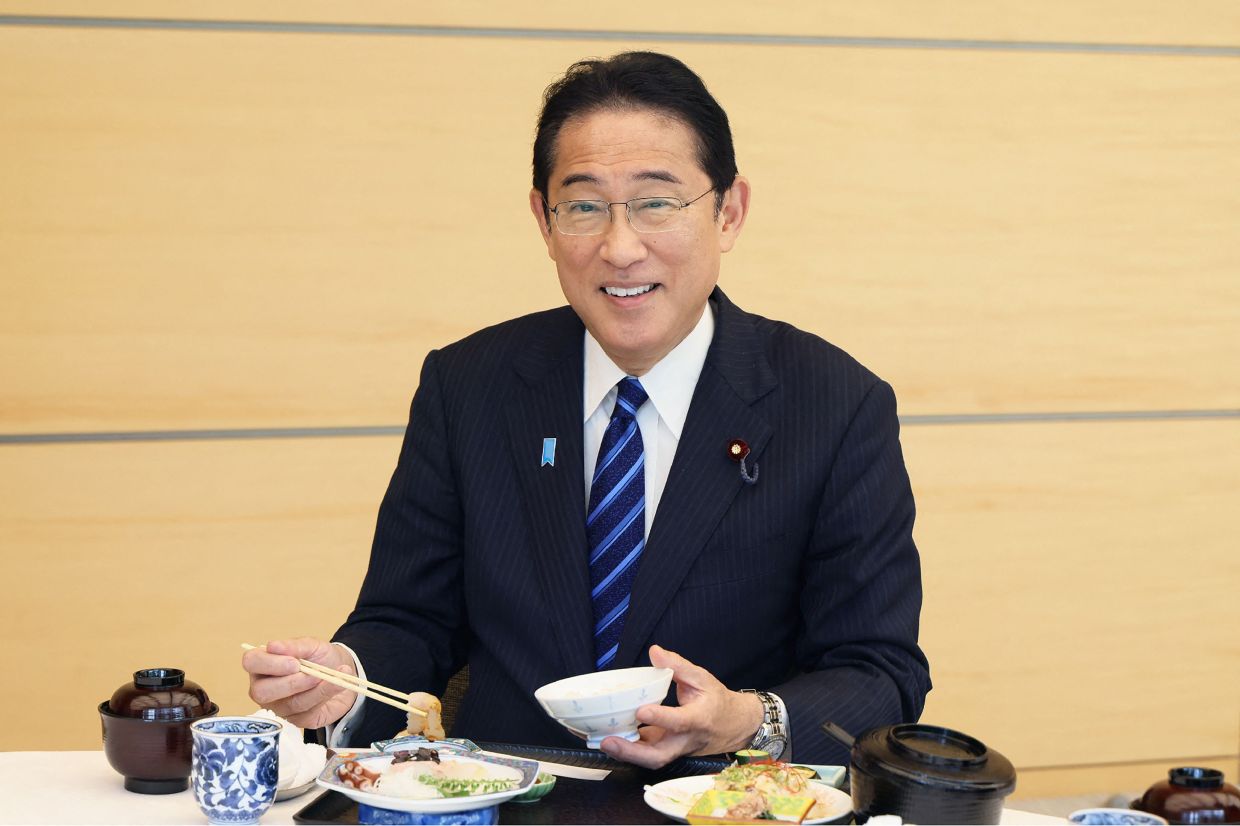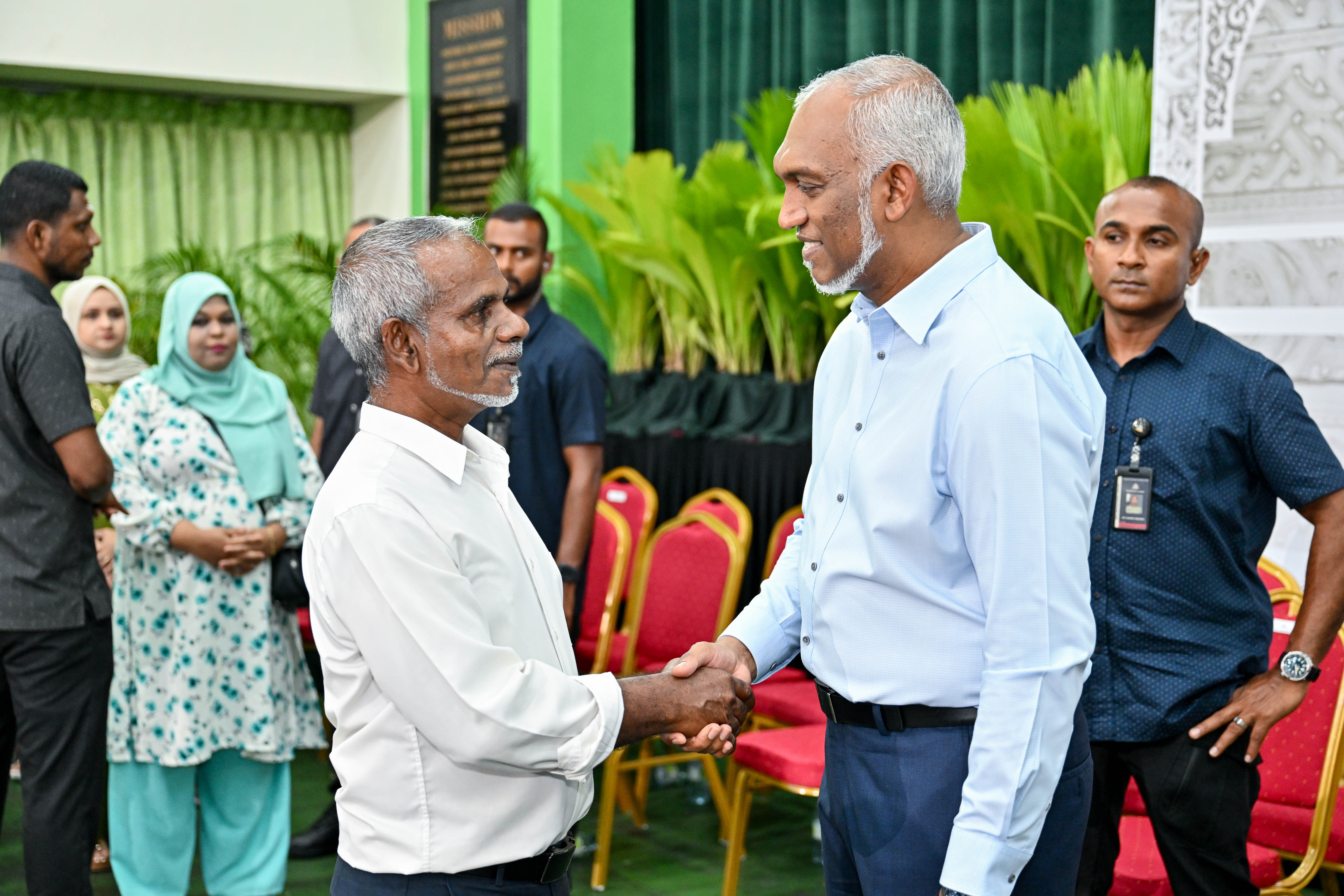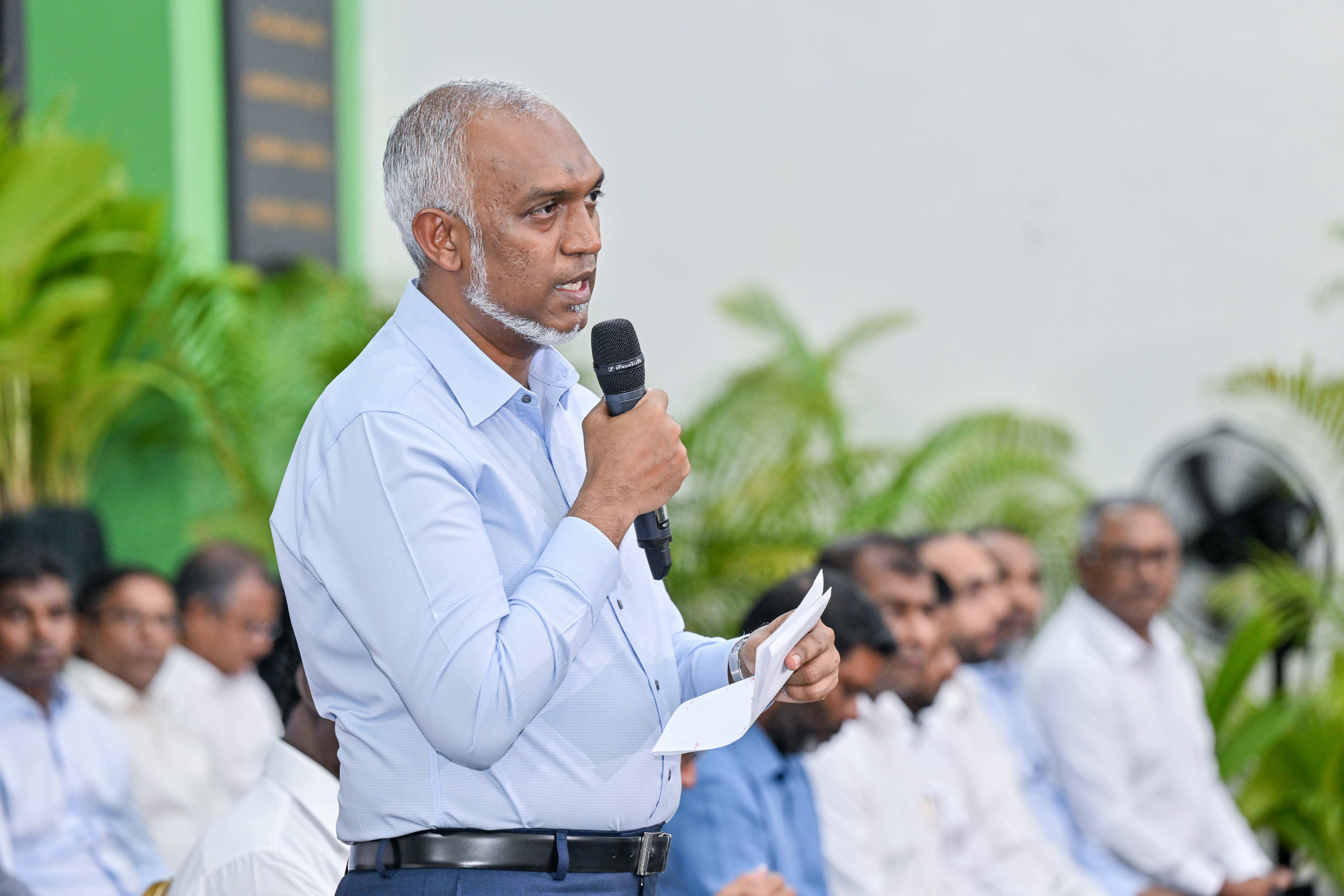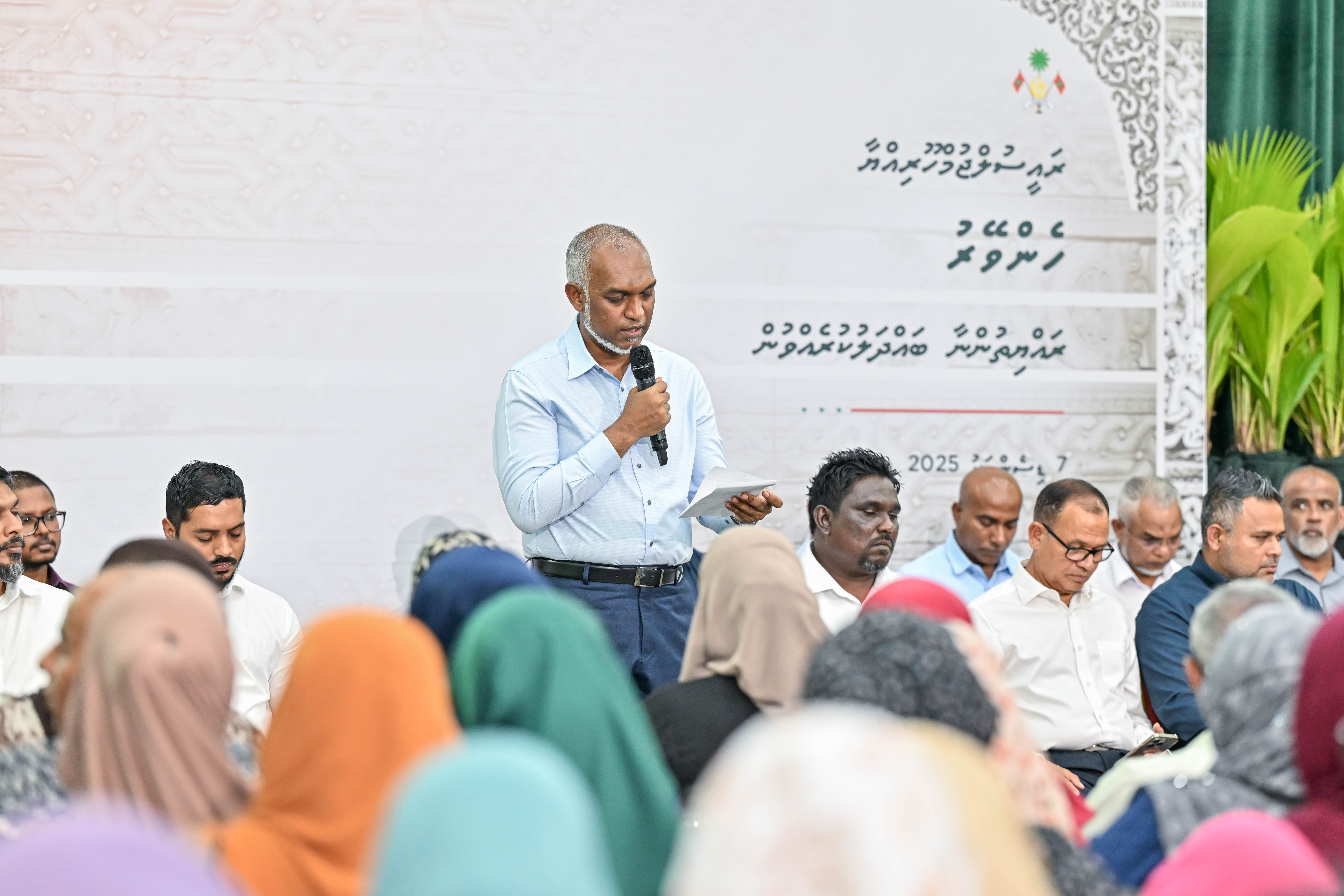In an apparent effort to allay safety worries following the release of treated radioactive wastewater from the Fukushima Daiichi Nuclear Plant, Japanese Prime Minister Fumio Kishida and three Cabinet members have dined on sushi caught off the Fukushima coast.
In the leader's office, Kishida and the three cabinet ministers sat down to a buffet of flounder, octopus, and seabass along with boiled pork, fruits, and other vegetables, according to Economy and Industry Minister Yasutoshi Nishimura, who was present at the lunch meeting.
"We eat in support of the Sanriku Joban region. All seafood items from Sanriku Joban are full of appeal," Kishida told reporters who were invited to film the meal.
The lunch showed Kishida's “strong commitment to take the leadership in tackling reputational damage while standing by the feelings of the fisheries community in Fukushima,” Nishimura said. “It is important to show safety based on scientific evidence and resolutely disseminate (the information) in and outside Japan."
The release of the treated wastewater into the ocean, which began Thursday and is expected to continue for decades, has been strongly opposed by fishing groups and neighboring countries. China immediately banned all imports of Japanese seafood in response. In South Korea, thousands of people joined rallies over the weekend to condemn the discharge.
In the leader's office, Kishida and the three cabinet ministers sat down to a buffet of flounder, octopus, and seabass along with boiled pork, fruits, and other vegetables, according to Economy and Industry Minister Yasutoshi Nishimura, who was present at the lunch meeting.
"We eat in support of the Sanriku Joban region. All seafood items from Sanriku Joban are full of appeal," Kishida told reporters who were invited to film the meal.
The lunch showed Kishida's “strong commitment to take the leadership in tackling reputational damage while standing by the feelings of the fisheries community in Fukushima,” Nishimura said. “It is important to show safety based on scientific evidence and resolutely disseminate (the information) in and outside Japan."
The release of the treated wastewater into the ocean, which began Thursday and is expected to continue for decades, has been strongly opposed by fishing groups and neighboring countries. China immediately banned all imports of Japanese seafood in response. In South Korea, thousands of people joined rallies over the weekend to condemn the discharge.


















